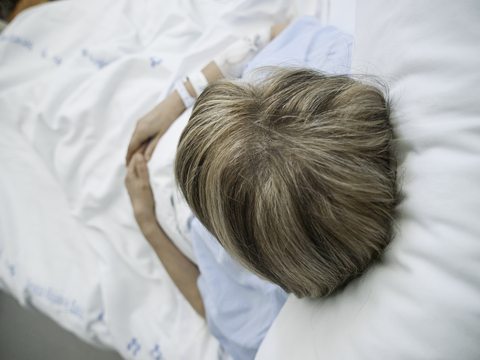
Thinning or loss of hair after an illness or surgery is not uncommon. But all too often patients are not told in advance of the possibility of hair loss. And, because shedding begins two to three months following the illness or procedure, the association can be overlooked altogether.
It’s called telogen effluvium and it’s the most common type of hair loss that occurs after illness or surgery. The hair growth cycle is sensitive and thrives on balance and equilibrium. Illness and surgery can create a shock to the system. Any imbalance or stressor that forces your body to to adapt can cause telogen effluvium. When this happens the normal hair growth cycle is disrupted.
In the normal hair growth cycle about 85% of your hair is in the growing stage. The other 15% is in the resting/shedding stage. With telogen effluvium a higher percentage of hair start to withdraw to the resting stage where they will be shed about three months later. The longer the condition lasts, the more the ratio changes.
If you have an illness that comes on suddenly and is brief, shedding usually returns to normal within several weeks to six months maximum. The thinning is barely noticeable. But, a long-lasting internal imbalance can cause continued shedding and severe thinness that is easily noticed. This condition is known as chronic telogen effluvium.
If you have surgery it can create another shock to your system. Whether surgery is due to a medical disorder or a broken bone, hair loss can occur. Necessary components of any medical procedure, such as anesthesia, medications and even antibiotics can contribute to hair loss.
The more complicated the illness and medical procedures, the more likely hair loss will occur. And if you have experienced telogen effluvium before, the chances are greater you could experience it again.
If you are active, healthy, well-nourished] and emotionally well, your hair growth cycle will have an easier time restoring itself. If you have other physical or emotional conditions when telogen effluvium begins, the condition may last longer and even become more severe. The human body has a built-in healing system based on priorities. If it is trying to regain balance in other parts of the body, it won’t see growing hair as much of a priority.
The most important thing you can do after an illness or surgery is to take the time to fully heal and recover. Your body needs extra nourishment during this time, especially if medications are being used, since certain medications are known to deplete a variety of nutrients that are necessary for healthy hair growth.
Take the time you need for proper healing after illness and surgery. Be good to yourself and get lots of rest. Not only is it necessary, it will also decrease the chances of ongoing telogen effluvium and other possible complications.
Once you recover and you find that hair loss is still a problem, there is a minimally invasive hair restoration called NeoGraftTM, which has proven successful for thousands of men and women. Coping with hair loss can be difficult. Before you give up, contact the experts to learn more.



